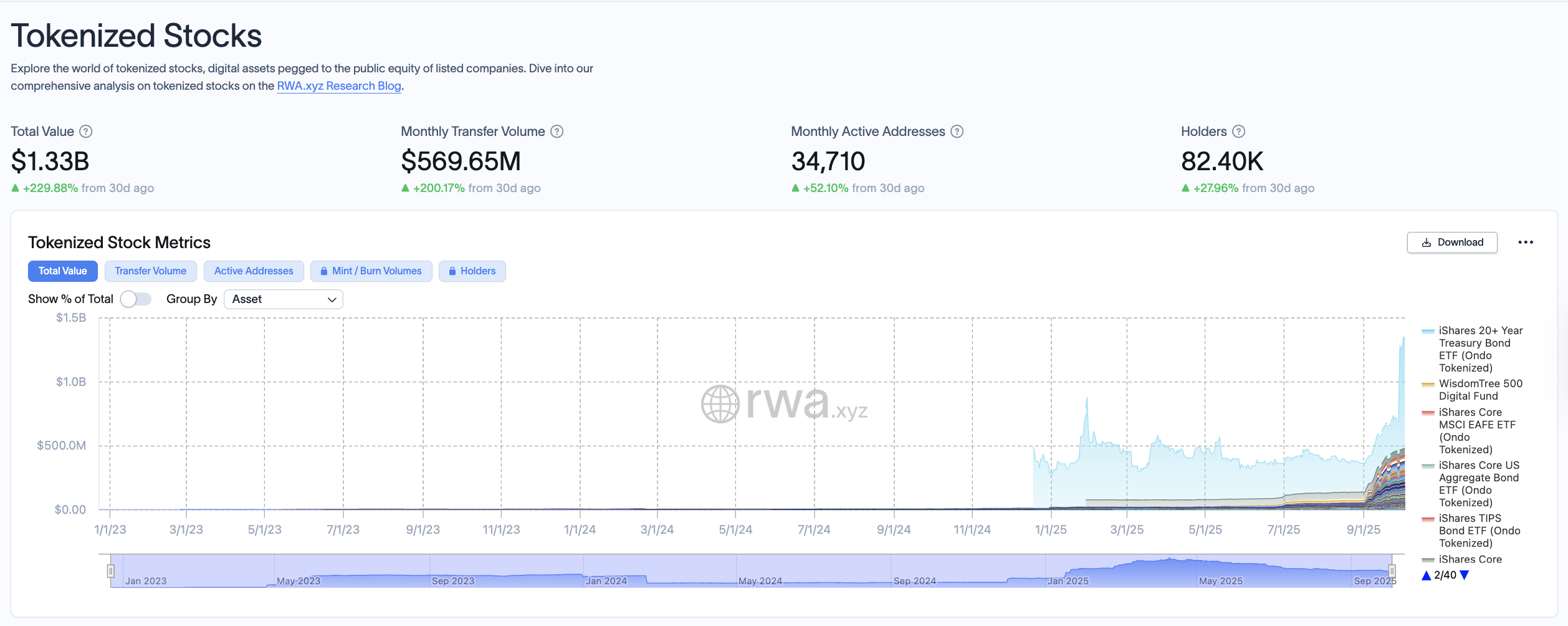
The Risks of Tokenizing DAT Stocks in Cryptocurrency
Crypto treasury companies that tokenize their shares expose investors to additional risks, according to industry experts.
Digital asset treasury (DAT) companies that engage in tokenizing their stock on the blockchain may further increase risks for investors and their own operations, as noted by some experts in the cryptocurrency sector.
“Blockchains operate 24/7, unlike traditional markets,” stated Kadan Stadelmann, Chief Technology Officer of the Komodo decentralized exchange platform.
The swift price fluctuations that can transpire outside of standard market hours may trigger a stock run from a treasury company that has both traditional and tokenized shares. This occurs without the company having an adequate amount of time to react to a price drop.
 Tokenized stocks have crossed $1.3 billion in value. Source: RWA.XYZ
Tokenized stocks have crossed $1.3 billion in value. Source: RWA.XYZ
Furthermore, risks associated with smart contracts or hacking that affect both the crypto treasury firm’s underlying assets and the tokenized stocks amplify the danger, Stadelmann added. Kanny Lee, CEO of SecondSwap, remarked:
“Tokenizing DAT equity results in a synthetic layer over another synthetic layer. Investors are subjected double the risk: first from the treasury’s volatile crypto and then from the myriad complexities of corporate equity, governance, and securities regulations. This results in significant risk on top of already fluctuating assets.”
Tokenized stocks are on the rise, with many companies now offering tokenized shares, and the U.S. Securities and Exchange Commission (SEC) is hinting at integrating 24/7 capital markets. However, the legal ambiguity surrounding these tokenized stocks places them in a regulatory gray area.
SEC and Stock Exchanges Advocacy for Tokenized Equities and Continuous Trading
The U.S. SEC is investigating blockchain-enabled stock trading to modernize the existing trading system that does not operate on evenings, weekends, or holidays and is marked by prolonged settlement periods compared to digital asset technologies.
SEC officials are considering permitting regulated retail crypto exchanges in the United States to provide tokenized stock trading. Traditional stock exchanges like Nasdaq and the New York Stock Exchange (NYSE) are advocating for extended trading hours to compete with crypto markets that operate continuously.
Nasdaq has revealed its plans to implement “24-hour trading, 5 days a week” by March, eyeing the launch of these extended hours in the latter half of 2026.
Related Articles: SEC’s push on tokenized stocks lacks clear advantages for cryptocurrency: Dragonfly Exec



